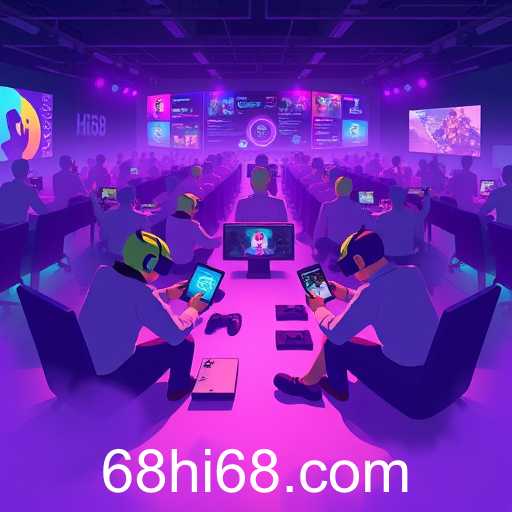In recent years, the exponential growth of online gaming has significantly impacted entertainment, culture, and technology landscapes. Platforms such as hi68 have transformed how enthusiasts engage with digital worlds, offering immersive experiences that transcend traditional gaming boundaries.
At the heart of this evolution is the creation and development of vibrant online communities. These digital spaces have become crucial for gamers seeking connection, support, and shared experiences. The 2020s have seen these communities evolve rapidly, facilitated by advances in technology and a societal shift towards remote and digital interactions.
hi68, a prominent hub for English-speaking gamers, exemplifies the power of these virtual networks. With extensive forums, real-time chats, and collaborative features, it allows users to connect and engage with like-minded individuals across the globe. This interconnectedness fosters a sense of belonging and camaraderie that enhances players' overall experience.
This trend towards community-oriented gaming aligns with broader cultural dynamics. As societal norms shift towards digital interaction, games and their communities offer an inclusive space free from geographical and physical constraints. The COVID-19 pandemic further accelerated this shift, pushing more people to seek entertainment and socialization through online platforms.
Moreover, these communities play a pivotal role in shaping gaming culture itself. They influence trends, contribute to game development feedback, and even drive significant in-game events. Online forums and sites like hi68 become critical venues for discussions that can impact future gaming landscapes.
Looking beyond 2025, the prospect for online gaming communities is exciting. With emerging technologies like AI, VR, and AR, the potential for more immersive and interactive experiences is vast. Platforms that adapt and evolve with these technological advancements, like hi68, will likely continue to thrive and shape the future of gaming.
Ultimately, the rise of online gaming communities signals a shift towards a more interconnected world. As these platforms continue to grow, they will not only redefine gaming but also contribute to broader societal transformations in how we connect and interact in a digital age.








